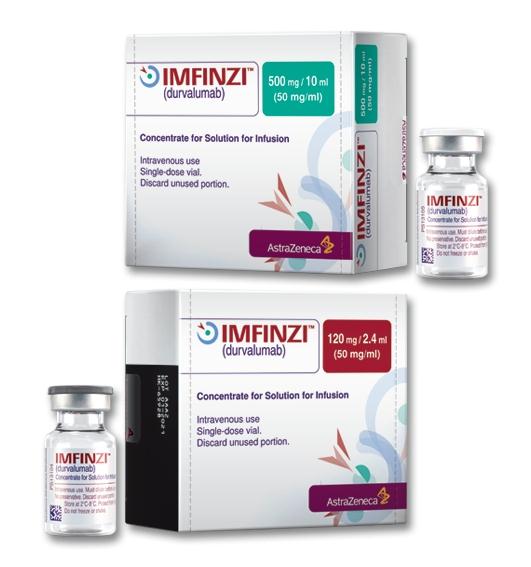Todos los Tratamientos Actuales con Inmunoterapia en Primera Línea en Pacientes con Cáncer de Pulmón de Células Pequeñas ... No Quieren Que Sus Pacientes se Vayan a Tratarse en Segunda Línea en Cuanto el Paciente Ya No Soporta Más la Inmunoterapia ... E Intentan con Combinaciones Desintoxicar lo Máximo Posible al Paciente Tratado con Inmunoterapia ( Terapia de Mantenimiento ) ... Así y una Vez Recuperado el Paciente Puede Volver a Ser Tratado en Primera Línea Otra Vez Con Inmunoterapia .
Radiotherapy and Durvalumab/Durvalumab Combo (Tremelimumab/Olaparid) For Small Cell Lung Cancer .
Title: Sequential maintenance with thoracic radiotherapy and DURVALUMAB (MEDI4736) monotherapy or DURVALUMAB (MEDI4736) combinations ( TREMELIMUMAB or OLAPARIB ) in patients with extensive STAGE-SMALL CELL LUNG CÁNCER after first line platinum based chemotherapy .
Principal Investigator: Alberto A Chiappori, MD, of H. Lee Moffitt Cancer Center and Research Institute .
Description: Researchers are conducting a phase 1 trial of multiple maintenance regimens in patients with extensive-stage small-cell lung cancer .
Patients who achieved a response or stable disease on first-line platinum-based chemotherapy will be assigned to 1 of 4 maintenance regimens.
The first regimen is standard maintenance, consisting of thoracic radiotherapy (3 Gy in 10 fractions), followed 2-3 weeks later by durvalumab (1500 mg every 4 weeks for up to 13 doses).
The second regimen is standard maintenance plus TREMELIMUMAB (75 mg every 4 weeks for up to 4 doses). The third regimen is standard maintenance plus OLAPARIB (300 mg twice daily). The fourth regimen is standard maintenance plus 1 dose of TREMELIMUMAB (300 mg).
The primary outcomes are the incidence of unacceptable serious adverse events and progression-free survival at 6 months. Secondary outcomes are 12-month progression-free survival and overall survival.
To be eligible for this study, patients must be 18 years of age or older and have an initial diagnosis of extensive-stage small-cell lung cancer. For a complete list of eligibility criteria, please see the reference.
Status: Recruiting
This study is sponsored by H. Lee Moffitt Cancer Center and Research Institute in collaboration with AstraZeneca.

